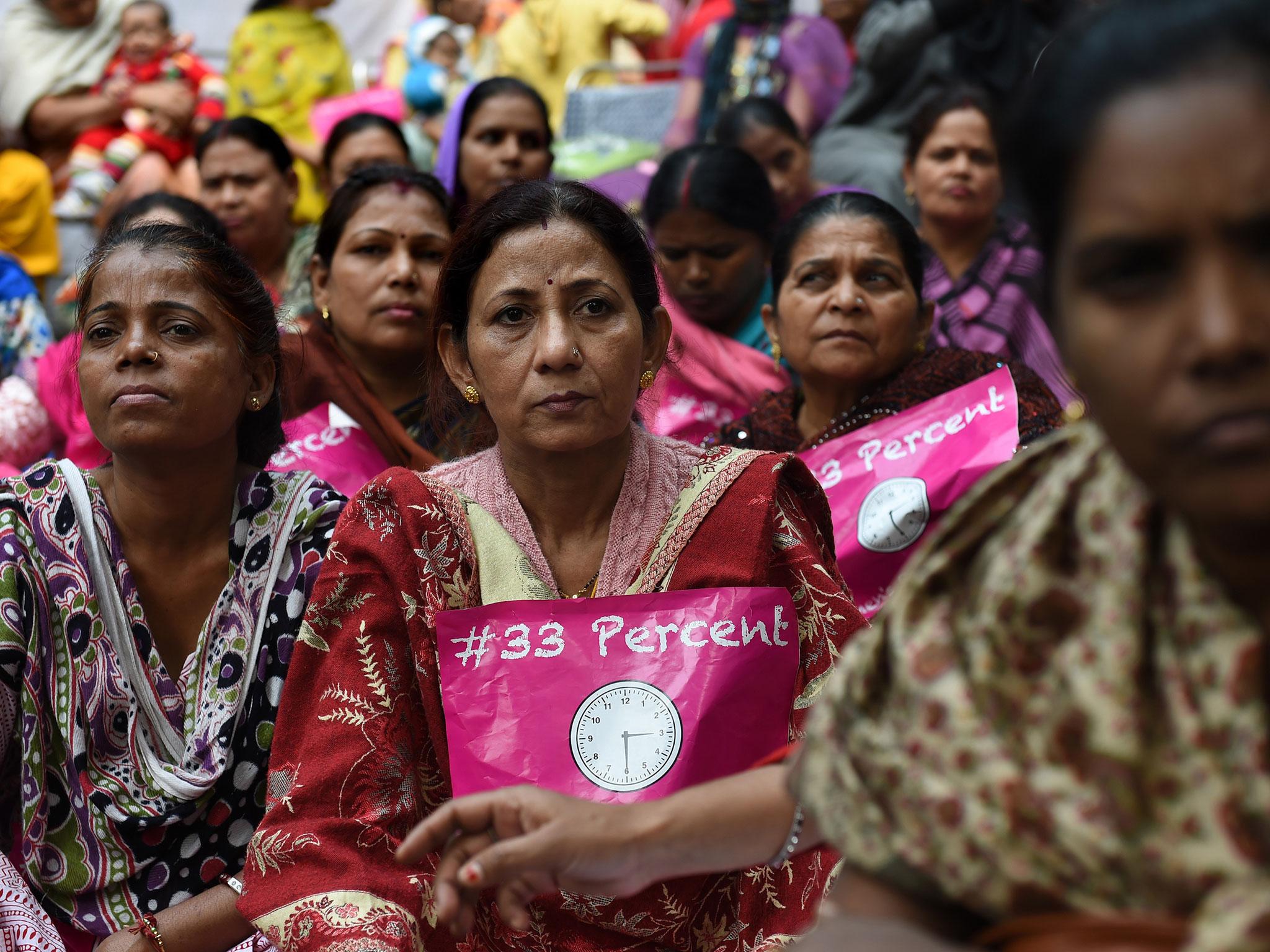My knickers are not in a twist - we need a global feminism
The sad fact is that sexism is global – whether this is through body dysmorphia and eating disorders, rape and terror, or lack of access to education

Your support helps us to tell the story
From reproductive rights to climate change to Big Tech, The Independent is on the ground when the story is developing. Whether it's investigating the financials of Elon Musk's pro-Trump PAC or producing our latest documentary, 'The A Word', which shines a light on the American women fighting for reproductive rights, we know how important it is to parse out the facts from the messaging.
At such a critical moment in US history, we need reporters on the ground. Your donation allows us to keep sending journalists to speak to both sides of the story.
The Independent is trusted by Americans across the entire political spectrum. And unlike many other quality news outlets, we choose not to lock Americans out of our reporting and analysis with paywalls. We believe quality journalism should be available to everyone, paid for by those who can afford it.
Your support makes all the difference.A few weeks ago, I spoke at the Feminism in London conference about “bodies and shame”. I used my personal experience of eating disorders as basis for my irreverent presentation: being a size 4 and a size 20 due to anorexia, compulsive eating disorder and bulimia; being sectioned under the Mental Health Act; and moving in and out of hospital a number of times.
I also spoke about my experience this year of being heavily trolled during the Beach Body Ready advert debacle – being called a “first world feminist”, a “SJW crybaby” and a “fucking feminist getting salt in her vagina” (I had no idea I was meant to use seasoning on my nether regions, but it’s good to know).
I was even called “the feminist equivalent of Isis” – which I want to put on my Edinburgh Fringe posters next year.
In my life I’ve experienced objectification; in fact, I view it every time I walk past a sexist advert. And that’s a regular daily occurrence. Advertising is the wallpaper of our lives and the majority of it still screams that women are objects to be owned, sexualised, that a woman’s worth is down to her sexual availability and desirability.
This translates across the world in different and frightening ways. A friend of mine recently wrote about her all-too-familiar experience of being sexually harassed on a train home. Another spoke to me about being manhandled in a club. When I was 18, I went clubbing with a friend and two men walked up to us and, without saying a word, shoved their hands down our jeans. Such crimes against women, wherever they lie on any perceived spectrum of seriousness, almost always go unpunished.
Whether it is an objectifying advert passively and powerfully suggesting my value is in my looks or I am to be owned (such as the ‘I Love Ugly’ advert for rings), or a group of men on a train crowding around a woman telling her what they’d like to do to her, the problem is rife –and it’s global. Worse, we are taught to be passive, we are taught to ignore, we are taught to shut up in response. We are told we’re “getting our knickers in a twist” and that we’re just “being emotional”. We internalise that we’re oversensitive, that we’re making a fuss over nothing, and that keeps us in an impossible bind.
But in this past year I’ve noticed a change. We’re rebelling. We’re speaking out more. We’re becoming braver. Not just braver in speaking out about our own personal experiences or those of our closer friends, but braver in standing up for women worldwide.
The sad fact is that sexism is global. Women face institutionalised prejudice worldwide – whether this is through body dysmorphia and eating disorders, rape and terror, or lack of access to education. We are taught in direct and indirect ways that women are the weaker sex, inferior, nagging irritants; meanwhile, men are to be feared and revered, ballsy, brave, courageous leaders who exercise their dominance in Parliament, in business, in the media and more. If that makes a woman angry, she’s more than likely to be told to “calm down, dear”.
In India, a child goes missing every 8 minutes and a woman is raped every 34 minutes. Dowry deaths and honour killings go on without dispute and those who commit these crimes regularly avoid punishment. These are things we have a responsibility to address, as they are happening to women, and they are happening now.
To stand for equality means recognising that feminism must have global aims. I believe that is worth standing up for. And I do not believe any of us should calm down about it – in fact, I very much believe the contrary.
Join our commenting forum
Join thought-provoking conversations, follow other Independent readers and see their replies
Comments